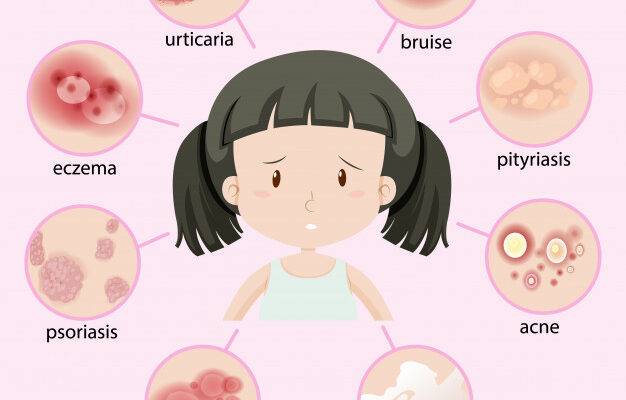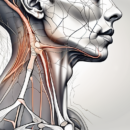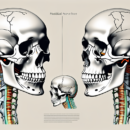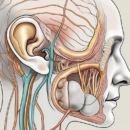ALZHEIMER’S DISEASE- NEUROLOGICAL DISORDER
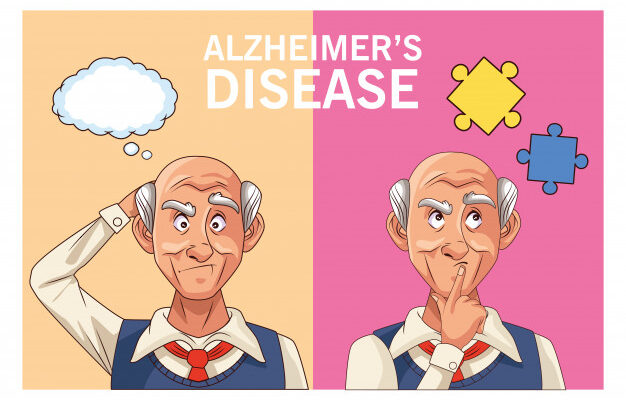
Alzheimer’s disease is a progressive neurologic disorder. It causes the brain to shrink as a result the cells of brain start dying eventually. Dementia is frequently caused by Alzheimer’s disease. Dementia is a continuous decline in thinking, behavioral and social skills that affects your functional ability independently. Studies have shown that one in ten people who age 65 and older i.e., 10% of world population are suffering from Alzheimer’s disease. Approximately one-third of people aging 85 and older which constitutes 32% worldly population have Alzheimer’s disease. Overall, we can say that out of the estimated 5.8 million people who have Alzheimer’s disease, 80% people age 75 or older.
What causes Alzheimer?
The reason of Alzheimer’s disease is unknown. But at a basic level scientist have concluded that brain proteins fail to function normally which disrupts the work of brain cells i.e., neurons. This triggers a series of toxic events which damages neurons and they lose connections to each other and eventually die. According to study, majority of people got Alzheimer’s disease which is usually caused by a combination of genetic, lifestyle and environmental factors that affect the brain over time. Less than 1% of the time, Alzheimer’s is caused by specific genetic changes that virtually guarantee a person will develop the disease.
Are There Any Signs and Symptoms Of Alzheimer?
If you are suffering from Alzheimer’s disease, then you would start forgetting recent events and conversations. It is the main sign that shows you might have Alzheimer. As the disease would progress, you will develop severe memory impairment and will lose the ability to carry out everyday tasks. Thus, you will be dependent on others for even basic ADLS. It has also been seen that people suffering from Alzheimer repeat statements and questions over and over. At first, you would routinely misplace your possessions. You will later find your belongings in illogical locations. With the progression of disease, you will be getting lost in familiar places and eventually forget the names of your family members and everyday objects. All these signs and symptoms will be noticed by your family members. Multitasking, thinking and concentration will become extremely difficult for you. If you realize any of these symptoms developing in you, contact a doctor so that the progression of disease could be slowed down.
What Are the Risk Factors Of Alzheimer?
The first risk factor is age. With increasing age there is a greater chance that you will develop Alzheimer’s disease. It is not a part of normal aging, but as you grow older the likelihood of developing Alzheimer’s disease increases. The other risk factor is family history and genetics. The chances of getting Alzheimer’s is slightly higher if your parent or sibling has been suffering from the disease. Most genomic mechanisms of Alzheimer’s between families persist mainly unexplained, and the genomic influences are likely complex. Research have shown that the same risk factors associated with heart disease may also increase the risk of Alzheimer’s disease. These factors involve absence of exercise, obesity, hypertension, high level of cholesterol, and type 2 diabetes. If you are facing any of these diseases, there is a great chance you would develop Alzheimer with the passage of time.
Are There Any Complications of Alzheimer?
You could face complications like memory and language loss and impaired judgment. If you are suffering from Alzheimer, then it would be quite difficult for you to communicate about the pain you are experiencing. You would not be able to explain the symptoms of another illness or follow a prescribed treatment plan. As Alzheimer’s disease progresses to its last stages, brain changes begin to affect your physical functions such as swallowing, balance, and bowel and bladder control. These effects can increase vulnerability to additional health problems such as inhaling food or liquid into the lungs, flu, pneumonia and other infections, fractures, bedsores, malnutrition, dehydration, constipation, diarrhea, and even dental problems such as mouth sores or tooth decay.
Does Alzheimer Effect on A Person’s Personality and Behavior?
The answer is yes. Brain changes that occur in Alzheimer’s disease can affect your moods and behaviors. You may face problems like depression, apathy, social withdrawal, excessive mood swings, distrust in your loved ones, severe irritability and aggressiveness, changes in sleeping habits resulting in insomnia, wandering without any reason, loss of inhibitions and delusions such as believing something has been stolen.
Are There Any Skills That Are Preserved During the Progression of Disease?
Yes, many important skills are preserved for longer periods even while symptoms worsen. These preserved skills may include reading or listening to books, telling stories and reminiscing, singing, listening to music, dancing, drawing, or doing crafts. These skills can be maintained longer because they are controlled by parts of the brain that are affected later in the course of the disease.
Can Alzheimer Be Treated with Medications?
This is the most common question asked by people suffering from Alzheimer. Medications may temporarily improve your Alzheimer by slowing the progression of your symptoms. These treatments can sometimes help you in maximizing your functional ability and you would also be able to maintain independence for a certain period. Different programs and services are established that not only support you but also your caregivers to fight Alzheimer. But unfortunately, our world has not advanced yet to establish a solid cure or treatment to end your Alzheimer’s disease or alter its process in your brain. In advanced stages of Alzheimer, complications occur from severe loss of brain function that includes dehydration, malnutrition and even infections which results in death of the person.
How Can We Prevent Alzheimer?
Alzheimer’s disease is not a preventable condition. However, you can modify several lifestyle risks factors of Alzheimer. Evidence suggests that changes in diet, exercise, and habits steps to reduce the risk of cardiovascular disease which may also lower your risk of developing Alzheimer’s disease and other disorders that cause dementia. Exercising regularly, eating a healthy diet, and following treatment guidelines to manage high blood pressure, diabetes and high cholesterol are the main ways of prevention. It also seems that regular exercise helps the brain to work efficiently. Thus, you should engage in physical activities more and more and enjoy the company of your friends and family as they would be the only one who would help you in these difficult times.







